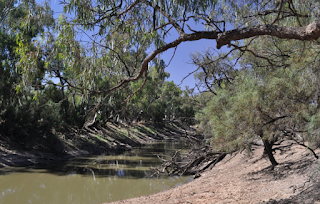Externalise the story
This is an important first step. It is therapeutic to
offload the story instead of keeping it internalised, and once it is out there
we can begin to process it. Externalising can be done simply by writing out the
story or telling it to someone who is supportive and understanding. It can also
be done diagrammatically or through works of art.
Identify the losses
Taking time to reflect on the losses and to name them is the
next step, and it can be helpful to list these. Losses include feeling
abandoned, being unable to express feelings, not having been parented well,
feeling that the world is not safe, not being comfortable in relationships,
needing to take time to deal with the impacts and thus disengaging from living,
loss of respect, loss of trust, not experiencing unconditional love from
parents, loss of innocence and of childhood, lost opportunities, loss of
pleasure … and many others.
Grieve for the losses
Tap into feelings now, especially any that had to be
repressed in childhood, and find a source of comfort. Feelings need to be
honoured and externalised, and comfort is an important part of grieving.
There is more to the story: the gains
After having taken these steps, I found it useful to write a
list of the losses and then, for each one, try to find a gain. I chose to write
these in a journal so that I could refer back to them. Here are some examples:
Losses
|
Gains
|
Missing school
|
Developed good study skills
|
Lack of being nurtured and cared for
|
Learnt to self-nurture and to care for
others
|
Lost help
|
Learnt self-help and to seek it
|
Time taken up managing anxiety
|
Developed a whole range of useful management
techniques and shared these with others
|
Loss of dignity and respect
|
More open to serving others rather than
seeking status
|
Loss of confidence in self
|
Finding ways to re-build this and to
share this with others who are struggling
|
Loss of play in childhood
|
Developed a love of reading and
creating
|
Loss of privacy
|
Learnt to value privacy and confidentiality
|
Feeling abandoned
|
Sought friendships with others and learned
not to abandon my own children and grandchildren
|
Time taken struggling to heal
|
Became stronger and more insightful
|
Re-telling the story
Having identified the gains, it may be useful to re-write/
re-tell the story and include the gains as part of the story (a bit of a
narrative type approach). This makes a more rounded story and allows us to see
that strengths can come from adversity.







No comments:
Post a Comment